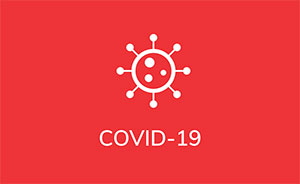Compared to the earlier study, this one used a larger and broader cohort of patients. They included patients with diagnoses of CLL, and related B-cell lymphomas, namely marginal zone lymphoma, diffuse large B-cell lymphoma, follicular lymphoma, mantle cell lymphoma, and Waldenstrom’s macroglobulinemia. All but one were involved with some form of treatment: immunochemotherapy, Bruton’s tyrosine kinase inhibitors (BTKi) with or without anti-CD20 monoclonal antibody therapy, single-agent anti-CD20 monoclonal antibody, and other targeted therapy such as venetoclax, lenalidomide, and bortezomib. In addition, two patients had received prior autologous stem cell transplantation, one patient allogeneic transplantation, and one patient chimeric antigen receptor T-cell therapy.
Given the types of therapy involved, there is no surprise that the production of antibodies was markedly lower than in the control group. However, there were some surprises in the T cell portion of the study. While the total number of lymphocytes was lower than the control group. CD4+ T cells responding to spike protein were readily detected in all but patients with mantle zone lymphoma. In addition, T-cell responses were specific for the spike protein, as evidenced by no response to peptides of whole nucleoprotein.
T cell activity can include direct killing, enhancement of inflammatory tissue response, and other cytokine actions that could act as some defense even in the absence of antibody production. Therefore, patients with no antibody response should not conclude that they have no immune response just because the antibody test was negative. This suggests that antibody production should not be used as the sole biomarker for vaccine efficacy. Additional work needs to be done to determine if the presence of virus-specific T-cells confers protection in the absence of antibodies and to determine the effect of booster vaccine doses on the immune response.
In summary, this is another study showing impaired antibody response to the Covid-19 vaccines, but some possible surprisingly good responses in the T -cells.
You can find the ASH abstract at Antibody and T-Cell Responses to Covid-19 mRNA Vaccines in Patients with B-Cell Lymphomas and Chronic Lymphocytic Leukemia (CLL)
By Susan Leclair, Ph.D., CLS (NCA) is Chancellor Professor Emerita at the University of Massachusetts Dartmouth; Senior Scientist at Forensic DNA Associates; and Moderator and Speaker, PatientPower.info – an electronic resource for patients and health care providers.

















